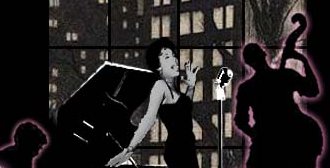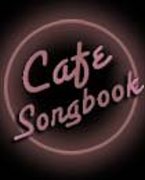Welcome toCafe SongbookInternet Home of the |
 |
 |
| Home || Songs || Songwriters || Performers || Articles and Blogs || Glossary || About Cafe Songbook || Contact/Submit Comment | |
| Search Tips: 1) Click "Find on This Page" button to activate page search box. 2) When searching for a name (e.g. a songwriter), enter last name only. 3) When searching for a song title on the catalog page, omit an initial "The" or "A". 4) more search tips. | |
Louis Alter |
||
|
Basic InformationBorn: June 18, 1902, Haverhill, Massachusetts (US) Died: November 5, 1980 (age 78), New York City Primary songwriting role: composer; also pianist Co-writers: frequently Paul Francis Webster; (Click here for a database of Louis Alter's co-writers.) |
|
Overview and Commentary |
|
 Nora Bayes singing "Prohibition Blues" |
"From 1924 through 1928, Alter was the accompanist and touring partner to entertainer Nora Bayes. In 1928, he began composing and had his first hit with “Manhattan Serenade”, originally an instrumental that would later become the theme song for Easy Aces Radio Show in the 1930’s. The song would have another incarnation in 1942 when Harold Adamson would add a lyric." (from The Songwriters Hall of Fame biography of Alter) |
 |
In Nancy Groce's book, New York: Songs of the City (Watson-Guptill, 1999), the author quotes Alter:
|
 Louis Armstrong "Do You Know What It Means To Miss New Orleans" |
"After Hurricane Katrina, his song 'Do You Know What It Means to Miss New Orleans?' took on a different kind of meaning . . . . experiencing a revival due to its use in various post-Katrina documentary films and TV shows. It was used for strong emotional effect in Spike Lee's four-hour [documentary] When the Levees Broke (2006) and an equally moving dramatic sketch by Billy Crystal on HBO's Comic Relief 2006"(souce: Wikipedia). |
| back to top of page | |
Cafe Songbook |
Maxine Sullivan performs the Louis Alter/Sidney D. Mitchell song "You Turned the Tables on Me" at the Manassas Jazz Festival, December, 1975 (backed by Art Hodes, piano; Wally Garner, Clarinet; Butch Hall, Guitar). |
| back to top of page |
|
|
|||||||||||
| back to top of page | ||||||||||||
Visitor CommentsSubmit comments on songs, songwriters, performers, etc.
Feel free to suggest an addition or correction. Please read our Comments Guidelines before making a submission. (Posting of comments is subject to the guidelines. Not all comments will be posted.) |
| To submit a comment, click here. |
Posted Comments on Songwriter:
No Comments as yet posted |
| back to top of page |
Credits(Louis Alter page) |
Credits for Videomakers of videos used on this page:
Borrowed material (text): The sources of all quoted and paraphrased text are cited. Such content is used under the rules of fair use to further the educational objectives of CafeSongbook.com. CafeSongbook.com makes no claims to rights of any kind in this content or the sources from which it comes.
Borrowed material (images): Images of CD, DVD, book and similar product covers are used courtesy of either Amazon.com
Any other images that appear on CafeSongbook.com pages are either in the public domain or appear through the specific permission of their owners. Such permission will be acknowledged in this space on the page where the image is used.
For further information on Cafe Songbook policies with regard to the above matters, see our "About Cafe Songbook" page (link at top and bottom of every page). |
| Home || Songs || Songwriters || Performers || Articles and Blogs || Glossary || About Cafe Songbook || Contact/Submit Comment | |
© 2009-2018 by CafeSongbook.com -- All Rights Reserved |
